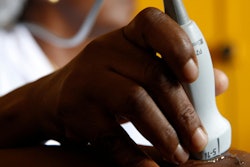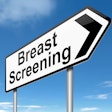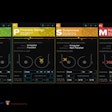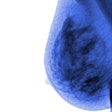Dear Women's Imaging Insider,
Another RSNA annual meeting has come and gone, and with it came another showcase of the latest research in radiology, women's imaging included. So, as we celebrate the holiday season, let's dive into some of the research and insights presented in Chicago.
In her presentation at the meeting, Dr. Heera Yoen from Seoul National University Hospital in South Korea showed results from her team's study suggesting that preoperative MRI can lead to better outcomes in younger breast cancer patients. Read what the team found in this edition's Insider Exclusive.
Also, Dr. Wendie Berg, PhD, from the University of Pittsburgh discussed contrast-enhanced mammography and its potential with AuntMinnie.com's own Erik Ridley at McCormick Place. See what data Berg highlighted in this video interview.
And could abbreviated breast MRI serve as an alternative when it comes to high-risk supplemental screening? Research presented by Dr. Marissa Lawson from the University of Washington says yes, with the abbreviated modality comparing favorably to conventional MRI and contrast-enhanced mammography in the team's study.
Finally, research shown by Dr. Grace Lin from Kaiser Permanente in California suggests that ultrasound is not needed to identify breast cancer in women with fatty tissue.
Be sure to check out other women's imaging stories and more that the AuntMinnie.com team covered at the meeting. In the meantime, here are more stories coming out of the women's imaging community:
- Mammography care coordination by U.S. Department of Veterans Affairs (VA) medical centers is perceived as inefficient due to coordination challenges with outside facilities, a survey found.
- Researchers from India found that a hybrid AI model using dynamic contrast-enhanced MR images has high accuracy in predicting complete treatment response in breast cancer patients.
- Palpable ductal carcinoma in situ (DCIS) does not have significant recurrence rates compared with screen-detected DCIS, a University of Southern California team found.
- Researchers from Boston found that switching from real-time to batch offline mammography exam interpretation lowers abnormal interpretation rates.
Find more articles like these by regularly visiting your Women's Imaging Community!




















